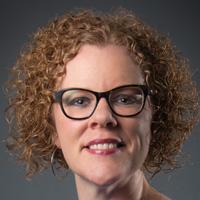
Living Our Stories: Education Enables New Possibilities
Growing up a “teacher’s kid,” there were many days my mother had to be at school early to attend a meeting, prepare lessons, or grade papers. On those days, a chorus of groans would erupt from my brother, sister, and me as we’d beg my dad to take us to school later (instead of getting dragged in early with mom).
We’d gather our lunchboxes and backpacks and cram into the cab of dad’s 1971 avocado green Chevy Custom Deluxe pickup truck. The cab was usually sprinkled with sawdust shavings from the wood mill where he worked, along with a few empty Dr. Pepper cans and Snickers wrappers.
Rumbling down the farm-to-market road toward town, I can distinctly remember hearing the sound of Paul Harvey’s signature voice bellowing from the lone radio speaker in the center of the dashboard. I’d listen intently to the story…and then to “the rest of the story.”
I loved knowing the rest of the story.
We All Have a Story to Tell
Little did I realize, those many years ago, that I would devote my professional career to guiding organizations in better defining and sharing their stories. From nonprofits and universities to Fortune 500 firms, I have worked with all types of institutions to engage their clients and stakeholders.
Since starting my new role at the Dana Center just a few months ago, I’ve huddled around conference tables with staff working in every facet of the organization, from authors, facilitators, and evaluators engaged in our K-12 and higher education work, to experts working in early literacy and the education of homeless children and youth.
What’s impressed me most is that at every level, the Dana Center team understands that we all have a “rest of the story.”
At the Dana Center, we focus on helping students—and education systems—reframe the stories about what’s possible in math and science education.
In fact, many of the staff here (myself included) understand at a very personal level the challenges and the opportunities every student faces in reframing the internal story that too many students tell themselves of not “being a math person.”
Empowering Students to Shift Their Stories
From the Dana Center’s inception, we’ve been collaborating with others to shift mindsets about what’s possible when it comes to math and science education. One of our flagship programs, the Dana Center Mathematics Pathways, grew out of our decades-long commitment to clearing the way for student success from kindergarten all the way through postsecondary education.
It’s this perspective that the Dana Center brings to ensuring that both what students learn and how they learn it prepares them for a bright future. It’s why we work both locally and systemically, focusing on mathematics and science education but also on early literacy and services for homeless students—to ensure all students can succeed in these demanding subjects.
Shifting My Story
Going to school in a small rural community, I also came to believe that I was “not a math or science person.” And I know what it’s like to struggle with a fixed (and, too often, negative) mindset—one that tells you that you simply aren’t smart enough to do the work.
Although I meandered through my high school math and science honors courses fairly easily, I was in for a rude awakening when I landed at Texas A&M University as a freshman. I quickly discovered that I was in no way prepared for the rigor of university-level math and science courses.
Upon receiving a “D”— which meant “done” in my world—in my freshman biology class, my goal of becoming a physical therapist fell to the wayside. I headed over to the College of Liberal Arts, where I took as many English and Spanish classes as I could and delayed pursuing my math credits as long as possible.
I have to admit that it’s a bit ironic to me now, some 25 years later, that I am using my journalism degree to help shape and share the story of a mathematics and science education research unit at The University of Texas at Austin. Though every day, I think of that young version of myself who struggled, and I remember why, like my colleagues, I’m so passionate about the work we do to share the rest of the story.
About the Author
Lara Zuehlke
As a child living on a pig farm in Clifton, Texas, I was certainly no stranger to the idea of working hard. With such a small school district, I had my mother twice as teacher. She had a poster in her classroom (and used to tell students often), “Your I CAN is more important than your IQ.” I’ve learned firsthand over the years that hard work alone can be fruitless if you don’t also believe you can succeed.
Get in Touch
We collaborate with state districts and teachers to develop innovative curricula, resources, and professional development.

